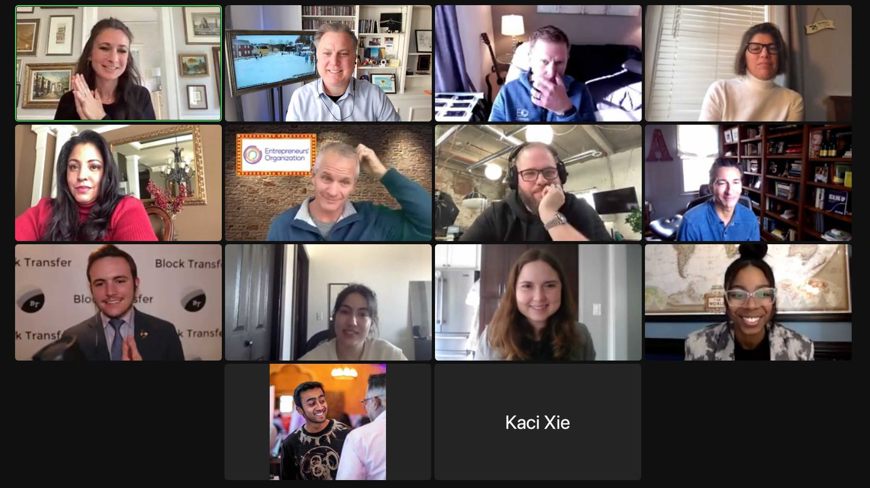Once Bullied, Neurodivergent Teen Started a Company that Channeled His Pain into Purpose
August 7, 2025
Published in:
Long chastised by peers for his differences, Kai Seymon’s fidget tool business became a seven-figure success that earned him recognition on the world stage when he was runner-up at this year’s Global Student Entrepreneur Awards.

He should have been nervous. Terrified, even. Yet, as Kai Seymon stood on stage at Entrepreneurs' Organization's Global Student Entrepreneur Awards (GSEA) finals in Osaka, Japan, this year, flanked by some of the world’s most ambitious young founders, contentment washed over him.
“Whether I came sixth or first,” he recalls, “I already felt like I had won.”
For the 18-year-old from Melbourne, advancing farther in the competition than more than 1,400 other young entrepreneurs symbolized not only business success but personal validation. Not long before he surged through GSEA’s local and regional competitions to reach that stage, Kai was often bullied and harassed at school for using fidget toys to manage his autism and dyslexia. In Japan, though, he was being celebrated for revolutionizing the very tools that once made him a target.
His company, Kaiko Fidgets, which he co-founded with help from his parents at just 11 years old, produces sleek, age-appropriate sensory tools that support the mental health and emotional regulation of neurodivergent individuals. What started as a homemade fix is now a thriving business with more than US$5 million in annual revenue.
More importantly, the company has helped reshape lives all over the world — especially its founder’s.
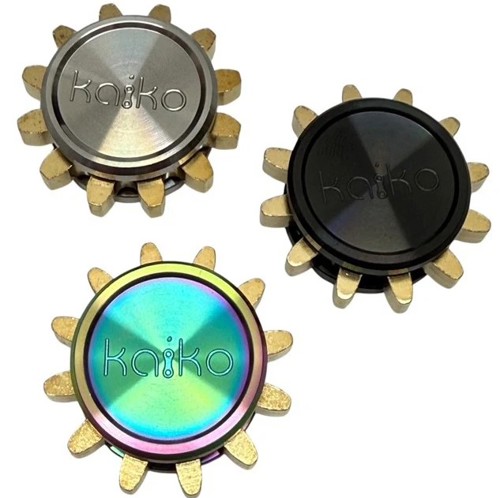 Kaiko offers a range of products for the neurodivergent community.
Kaiko offers a range of products for the neurodivergent community.
From Isolation to Innovation
Kai struggled to keep up in class throughout his life. Reading, writing, and spelling often felt like insurmountable tasks, leaving him feeling out of place. To help him focus, he used fidget tools in school. The constant motion of fidgeting heightens executive function in the brain, and helps reduce adrenaline and cortisol levels, which can hinder focus when elevated. But the bright, toylike trinkets he used seemed designed for much younger children and only drew negative attention from his adolescent peers. One classmate even smeared wasabi in Kai’s eyes. When Kai returned home after incidents like that, he told his mother, Joanne, that he felt he had no purpose in life and nothing to contribute.
“Kids can be fairly brutal,” she says. “You are not broken or less than, but when you are wired differently, your brain thinks differently, you respond socially differently, and you process language differently. All those things make you stand out. It was pretty harsh.”
The wasabi’s sting penetrated deep, but the moment’s cruelty brought clarity. If the tools Kai needed did not exist in a form that helped him feel accepted, he decided he had to make ones that would.
Drawing from his own sensory needs — and with support from Joanne, who has a background in occupational therapy — Kai began experimenting with parts like bike chains to create discreet, durable metal fidgets. When he brought the prototypes to school, kids who once teased him asked if they could buy one, awed that he had designed them himself.
Feeling acceptance for the first time his life, Kai obliged — until administrators made him return the money, citing a ban on selling products on school grounds. So, he soon took his fidgets to a local market and sold 76 units in a single day.
“I saw my kid smile for the first time,” Joanne says. “I saw something that I had not seen in him since he started school, and that was genuine worth. He had purpose.”
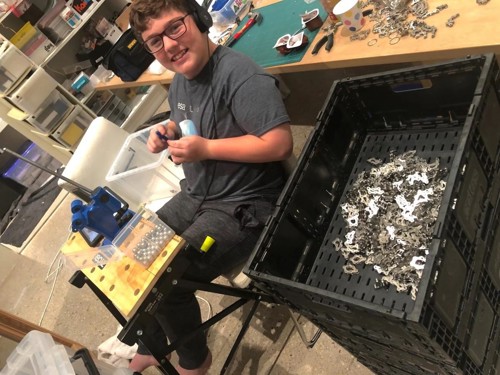
Kai took a hands-on approach to crafting his products from the company's earliest days.
Not Child’s Play
That spark ignited a booming business. Today, Kaiko Fidgets offers an array of products to a passionate customer base of families, therapists, schools, and neurodivergent individuals.
Most of the company’s tools are handcrafted and some are even co-designed with Kai’s fans and customers, like a bookmark-fidget hybrid conceptualized by a 10-year-old dyslexic girl. Kai and Joanne sent her prototypes and used several rounds of her feedback to shape the final product, which helped her focus as she read.

“The point of our product is to help people, especially in their time of need when they are feeling the most down and feeling the most that out of place.”
- Kai Seymon
To assemble their products, Kaiko hires contract workers who may not thrive in traditional workplaces, including trauma survivors and refugees who struggle with the local language. Most can assemble products at home on flexible schedules and get paid for each unit they build.
Still, the path hasn’t been without challenges. With Kai still wrapping up secondary school, his parents had pivoted to working on the business full-time, often logging 16-hour days. They needed help, so they brought on Kai’s uncle, a seasoned executive with other companies, to manage the financial and operational load while mentoring Kai, who continually generates ideas for new products.
“He has been very keen and open to help Kai grow and learn,” Joanne says.

From the start, Kaiko has been a family operation.
Global Recognition
By chance, a friend of a friend introduced Kai to Entrepreneurs’ Organization (EO) and suggested he apply to take part in the organization’s annual GSEA competition via the EO Melbourne chapter. The contest recognizes exceptional student entrepreneurs who have successfully built and managed their own businesses while still in school. The catch? The competition started soon, and Kai only had a day to build a pitch deck. “I did not even practice,” Kai laughs. “I did not have time.”
Even so, he thrived, gaining confidence at every step. By spring, he had advanced from the local and regional competitions and won a chance to participate in the Start It Up Bootcamp in Cape Town. There, he would have to impress a panel of seasoned entrepreneurs, all EO members, who were serving as judges. He arrived in South Africa bracing for intense competition after a long journey — instead, he found only camaraderie. “Getting to know all the other young business owners has been nice,” he says.
His program-appointed mentors, Cathy Ren (EO China East) and Christina Gerakiteys (EO Sydney), offered advice and support as he crafted his final pitch for the judges. “I think Kai’s capacity to help more and more people is only going to grow,” Christina says. “I think his personal growth, and what it will do for the potential of his business, is enormous.”

Kai with mentors Christina Gerakiteys (EO Sydney) and Cathy Ren (EO China East).
After nailing his presentations in Cape Town, Kai was one of six finalists who advanced to Osaka for the announcement of the winner. While American Vienna Sparks earned the title of Global Champion, Kai finished second, taking home a US$25,000 prize.
As a next step, Kai’s mentors in the EO community encouraged him to join the EO Accelerator program, which is designed to help entrepreneurs scale new businesses to over US$1 million in annual revenue. While Kaiko has far surpassed that threshold and he already qualifies for full EO membership, Kai has chosen to join the Accelerator program to sharpen his skills and better understand business fundamentals. “When you are trying to hone and grow and refine your skills — and also yourself — Accelerator is really great for that,” Joanne says.

A Lifesaving Product
Most of Kaiko’s sales come from customers in Australia and New Zealand. Kai, though, is thinking bigger: He hopes to soon expand to Japan with the help of a distributor he met during the GSEA finals. After that, he is eyeing the United States and Europe, though the latter presents steep compliance hurdles.
Even as the business scales, Kai remains focused on the mission that first set him down this remarkable path. Kaiko Fidgets continues to innovate harm-reduction tools for people who engage in behaviors like skin-picking and cutting. Aside from the typical fidget tools, some of the company’s designs are crafted to redirect those dangerous impulses via healthier, safer products that do not break the skin. Some customers have even written to say their Kaiko tools kept them from seriously harming themselves — or worse.
“Our products have saved their lives,” he says. “The point of our product is to help people, especially in their time of need when they are feeling the most down and feeling the most that out of place.”
Joanne has seen that impact firsthand. Years ago, she watched her son struggle to read. To spell. To feel safe in his own skin. School was a daily battle with every task beset by friction and tension and pain. Now, she sees him manage a company. Pitch to seasoned entrepreneurs. Travel the world. Find acceptance and contentment.
“I watched him feel good about himself for the very first time,” Joanne says. “I feel like it saved his life.”
Get Involved with GSEA
If you are ready for your next big EO moment, where you will find inspiration from the energy of student entrepreneurs in the early days of their journey to change our world, get involved with GSEA as a judge, mentor, sponsor or guest at the local, country, or global level.
If you know a student entrepreneur who is running a company while simultaneously attending university, encourage them to apply to compete in the next GSEA competition.
 More GSEA Stories
More GSEA Stories
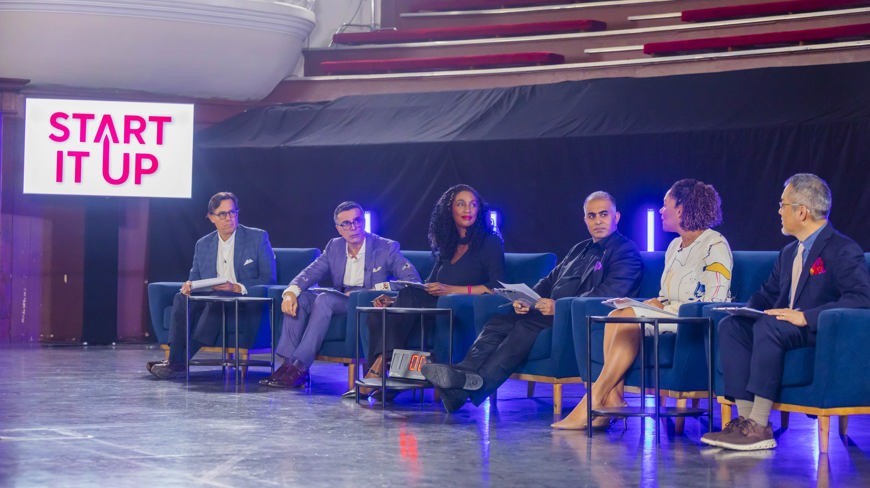
Why GSEA Matters To Both Student Competitors and Established Entrepreneurs
Judging the Global Student Entrepreneur Awards (GSEA) in Cape Town reminded me that true entrepreneurship is about purpose, grit, and impact. These student founders reignited my passion by showing what’s possible when vision meets resilience—and why GSEA is one of the most powerful ways EO members can give back and grow.
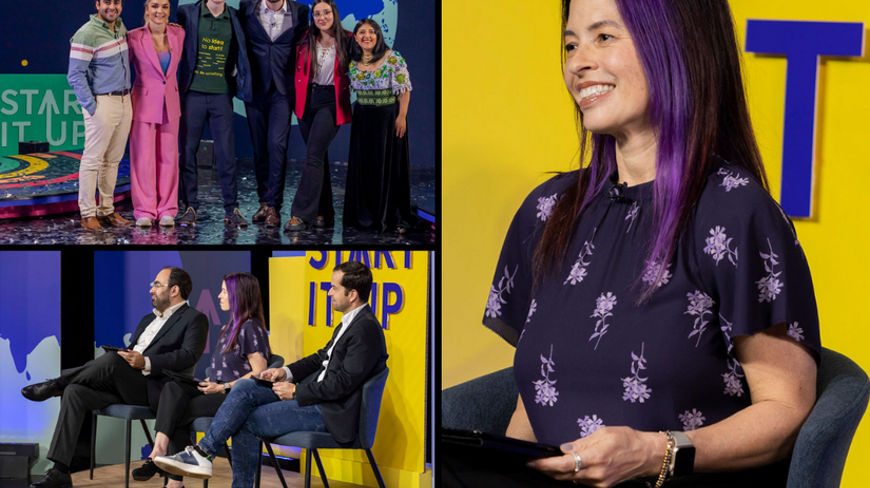
7 Surprising Things I Learned from EO GSEA Studentrepreneurs
Reconnect with the magic of being an entrepreneur by volunteering with the Global Student Entrepreneur Awards -- the energy and optimism are contagious!